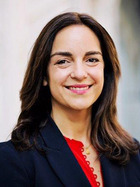Resource Navigation
Learn more about how CancerCare Resource Navigation can help you address barriers to care.
Connect Education Workshops
Listen in by telephone or online as leading experts in oncology provide up-to-date information about cancer-related issues in one-hour workshops. Podcasts are also available.
Podcasts
Affordable Care Act
- Highlights of the Affordable Care Act, Nov 11, 2014
- Understanding the Affordable Care Act (ACA) for People Living with Cancer, Dec 12, 2012
Publications
Read or order our free Connect booklets and fact sheets offering easy-to-read information about the latest cancer treatments, managing side effects and coping with cancer.
For Any Cancer Diagnosis
Financial Assistance
Limited assistance from CancerCare is available to help with cancer-related costs.
Ask CancerCare
Every month, featured experts answer your questions about coping with cancer including specific answers to questions asked by caregivers.
For Any Cancer Diagnosis
- Q.
I think I may have cancer but I don't have any insurance and I'm not sure I can afford it. What can I do?
A.I understand your concern about the cost, but if you think you have cancer, you can’t afford not to visit the doctor. Cancer responds to treatment better when it’s caught early, and if it turns out that you don’t have it, you will have peace of mind.
There are 5 main ways to get health insurance:
Your, or your spouse’s, employer or union. If you or your spouse has a job that offers health insurance, ask if you’re eligible to receive it or buy into it. If you had insurance but lost your job within the last 60 days, ask if you’re eligible for COBRA. COBRA is a law that lets you keep your insurance for 18 months, sometimes longer. You pay the full cost.
Your school. If you are currently a full-time or part-time student, check with your college or university to see if you can get coverage through them.
Purchase it on your own. You can buy insurance either directly through an insurance company, or through your state’s Marketplace/Exchange. If you buy it directly through an insurance company, you will not be eligible for discounts based on your income. If you buy it through your state’s Marketplace/Exchange, your income will be taken into account, and you may receive an immediate subsidy, which will lower the cost of your premiums, and possibly your deductibles and co-pays as well. To find your state’s Marketplace, go to www.healthcare.gov. Please note: whether you buy it directly from an insurance company or through the Marketplace, you can only buy insurance during Open Enrollment. Open Enrollment occurs once a year; in most states, you must enroll between November 1 and December 15. There are a few exceptions to this rule – if you lose your job-based coverage mid year, get married, have a baby, move to another county or state, or become eligible for Medicaid, you are eligible for a “special enrollment period”. For more information on special enrollment periods, visit www.healthcare.gov.
Medicaid. Medicaid is a state-administered health insurance program that provides free or low-cost coverage to millions of Americans. In the 33 states (including Washington DC) that have chosen to “expand” Medicaid, it covers all children and adults below 138% of the Federal Poverty Level, which for 1 person in 2020 is $17,237. In the remaining 18 states, it only covers low-income families with children, pregnant women, the blind, and the disabled.
Medicare. If you are 65 or over, or have been deemed disabled by the Social Security Administration for 2 years, you may be eligible for Medicare. Contact www.medicare.gov for more information.
If you are unable to afford insurance and are ineligible for Medicaid or Medicare, ask about charity care and sliding scale programs (fees based on your income) at hospitals and clinics. Some hospitals are required to see patients who are uninsured. Contact your local department of public health, social services, or business office of your hospital of choice for more information.
Finally, if you are concerned about either breast or cervical cancer, the National Breast and Cervical Cancer Early Detection Program provides low-income, uninsured women access to screening and diagnostic services to detect breast and cervical cancers. Women who are subsequently diagnosed with cancer may be immediately eligible for limited Medicaid.
Specialized Programs
CancerCare offers specialized programs to address specific populations and concerns.
Coping Circle Workshops
Virtual educational and supportive workshops led by oncology social workers and qualified co-facilitators. These workshops cover numerous topics and are offered in English and Spanish.
Additional Resources
Organizations
American Cancer Society
Families USA
HealthCare.gov
Kaiser Family Foundation

 Answered by
Answered by